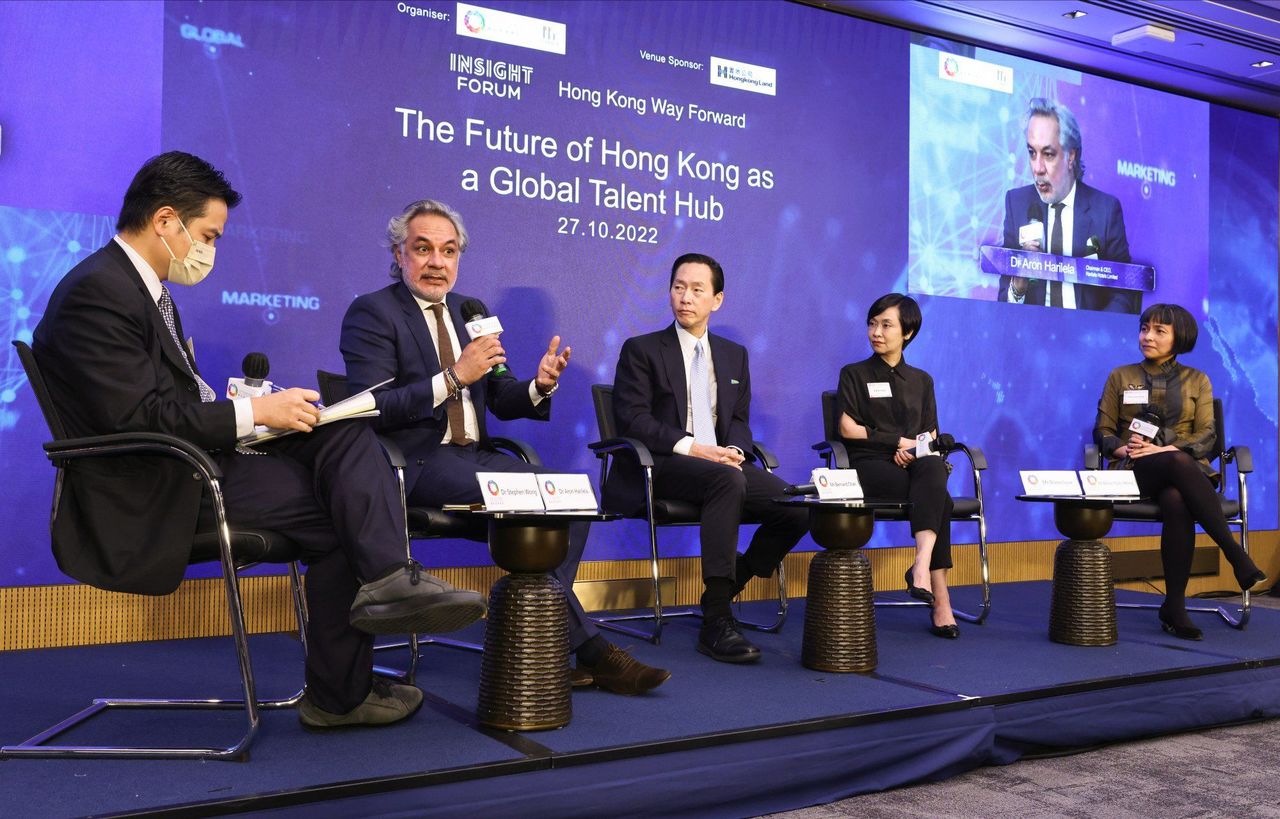Hong Kong News

What Hong Kong can learn from Singapore in developing talent
Global talent shortages have reached an all-time high, exacerbated by the Covid-19 pandemic. Most developed economies with ageing populations already suffer from a shrinking workforce, while millennial and Gen Z workers have different career goals and aspirations.
The pandemic has accelerated the pace of digital transformation, leaving organisations struggling to build information technology capability, and more people – not just the younger generation – reassessing the meaning of work and life.
In Hong Kong, the talent crunch is more pronounced due to other factors. According to JobsDB’s Hiring, Compensation & Benefits Report 2023, 68 per cent of companies surveyed feel recruitment has been harder in the past 12 months than the last five years. Employers report difficulties in finding people with the right experience and skills in almost all industries and at all levels, from financial services and marketing to engineering and merchandising.
On the employee side, the JobsDB Jobseeker Salary Report 2022 found 61 per cent of respondents concerned about post-pandemic changes in the job market, but only 27 per cent thought they needed to acquire a new skill to adapt to the digital transformation.
Employers in Hong Kong generally respond to the talent crunch by offering better pay and benefits, a more employee-friendly work environment and, increasingly, recruiting from overseas. Yet these may not address a talent shortage brought about by changing skill demands in a post-pandemic economy.
A more effective strategy requires organisations to equip their employees, at scale, with new skills. In a reflection of the global adjustment, nearly half of the learning and development professionals surveyed in LinkedIn’s 2022 Workplace Learning Report expect their companies to give them bigger budgets to spend, a six-year-high globally and in the Asia-Pacific.
There is also the role of technology. Digital technologies such as artificial intelligence, data analytics, blockchain and extended reality play an increasingly vital role in helping organisations build and bridge their talent in a more flexible, effective and scalable way.
 Industry leaders discuss the “The Future of Hong Kong as a Global Talent
Hub” at Our Hong Kong Foundation’s Insight Forum at Centricity on
October 27.
Industry leaders discuss the “The Future of Hong Kong as a Global Talent
Hub” at Our Hong Kong Foundation’s Insight Forum at Centricity on
October 27.
To develop a holistic strategy, the study will have to look into the manpower needs of not just the city’s pillar industries but also the rising stars flagged in China’s 14th five-year plan, any mega socio-economic and technological trends, as well as Hong Kong’s positioning in China, Asia and the world. Based on key growth industries, the study can identify both the hard and soft skills missing in Hong Kong’s labour market.
Hong Kong also needs a multipronged approach to the talent shortage. In addition to “snatching” talent, we have to build our pool by reskilling and upskilling the workforce. We have to ensure our education systems provide the relevant programmes to nurture the right talent.
Just as learning and development is becoming more central, strategic and cross-functional in a business, a holistic manpower development policy for Hong Kong will require different bureaus to work together, including the Labour and Welfare Bureau, Commerce and Economic Development Bureau, Education Bureau, and the Innovation, Technology and Industry Bureau. It will also require extensive consultations with stakeholder groups.
The government intends to shorten the manpower study’s projection period from the traditional 10 years to five, to reflect the trends in our economic and labour markets in a more timely manner. But even five years may be too long in a world changing at breakneck speed. The manpower projection plan will have to be updated regularly.
Singapore’s Skills Demand for the Future Economy Report can be a good reference. Launched last year, the report is designed as a resource for Singaporeans to map their skills development journey. Using big data and machine-learning models to monitor technological, business model and operation trends globally, regionally and locally, it highlighted three economic growth areas for Singapore – the digital economy, green economy and care economy – and the priority skills (both the technical and soft skills) needed for each.
It also details job roles and courses linked to these opportunities. It was updated recently with more in-depth skills analysis, trends in industry 4.0 technologies and how mid-career workers can reskill or upskill to stay relevant.
The report is part of the SkillsFuture movement, launched in 2015 and spearheaded by Singapore’s deputy prime minister under the Future Economy Council. With a citizen-centric approach and a strong focus on community education, the programme seeks to help individuals make well-informed choices in education, training and careers, develop an integrated high-quality system of education and training that responds to evolving needs, promote employer recognition and career development based on skills and mastery, and foster a culture that supports and celebrates lifelong learning.
It is high time that Hong Kong embarked on a similar skills-building movement to address its talent shortage and future-proof our citizens. This is the only way to ensure the sustainable and inclusive development of our society. Everyone can play a part.
To kick-start the skill-building agenda, Esperanza and several talent development partners are discussing how to encourage and support organisations in Hong Kong to reskill, upskill and cross-skill the workforce with the help of technology. We invite like-minded partners to join this group, to be part of this vital and meaningful journey.











